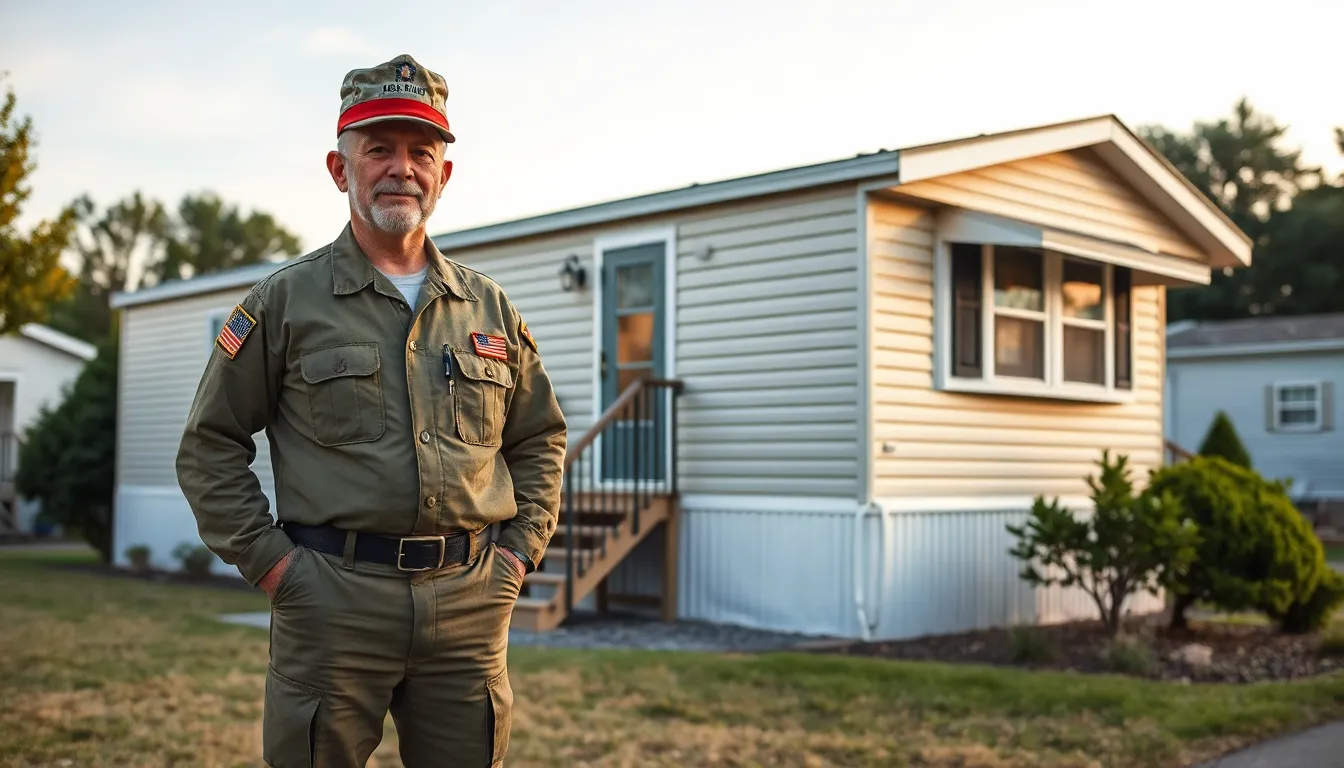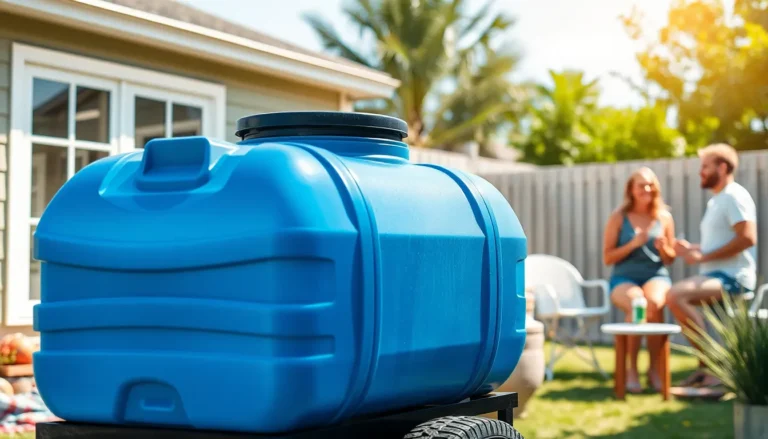When it comes to homeownership, many veterans might think their options are limited to traditional houses. But what if they could trade in that picket fence for a cozy mobile home? Enter the VA loan for mobile homes—a game changer that opens up new doors and drives away the stress of buying a home.
Table of Contents
ToggleUnderstanding VA Loans
VA loans provide a unique opportunity for veterans to achieve homeownership, especially for mobile homes. These loans offer several advantageous features that facilitate the purchasing process.
What Is a VA Loan?
A VA loan is a mortgage option specifically designed for eligible veterans, active-duty service members, and certain members of the National Guard and Reserves. It’s guaranteed by the U.S. Department of Veterans Affairs, allowing lenders to offer favorable terms. No down payment is often required, making it more accessible for veterans. The program also eliminates the need for private mortgage insurance, which can significantly lower monthly payments.
Benefits of VA Loans
VA loans present numerous benefits, enhancing affordability and flexibility for homebuyers. No down payment reduces initial costs, making homeownership viable for many veterans. Competitive interest rates often result in lower monthly mortgage payments compared to conventional loans. The absence of mortgage insurance saves additional money for homeowners. Flexible credit requirements help individuals with varied credit histories secure financing. These factors combined illustrate why VA loans are an appealing choice for veterans considering mobile homes.
VA Loan Eligibility for Mobile Homes

VA loans provide a viable option for veterans seeking to purchase mobile homes. Eligibility criteria for these loans ensure access for many veterans and service members.
Who Can Apply for a VA Loan?
Eligible individuals include veterans, active-duty service members, and some National Guard and Reserve members. Each applicant must possess a valid Certificate of Eligibility. This certificate proves the individual’s service duration and character, ensuring eligibility for VA loan benefits.
Requirements for Mobile Home Purchases
Purchasing a mobile home through a VA loan requires meeting specific criteria. The mobile home must be classified as real property, which typically involves being affixed to a permanent foundation. An applicant should also ensure the home meets the VA’s minimum property requirements, including safety and livability standards. Additionally, credit requirements remain flexible, with most lenders seeking a minimum credit score of 620.
Types of Mobile Homes Eligible for VA Loans
Several types of mobile homes qualify for VA loans, offering veterans various options based on their needs. These typically include single-wide and double-wide homes, as well as modular and manufactured homes.
Single-Wide vs. Double-Wide
Single-wide homes feature one long section, typically providing limited living space. An example includes a compact layout, making it ideal for individuals or small families. Double-wide homes consist of two sections, creating a more spacious environment. Families often prefer this style for its room and flexibility. The choice between single-wide and double-wide depends on budget and space requirements. Any selected option must adhere to VA’s standards for affordability and livability.
Permanent Foundations
Permanent foundations play a crucial role in VA loan eligibility for mobile homes. A mobile home must be permanently affixed to a foundation for it to be considered real property. Many lenders require this to ensure durability and stability. Homes without permanent foundations do not meet eligibility criteria. Moreover, the home must comply with local building codes and the VA’s minimum property standards. This inclusion stems from the need for safety and compliance in housing.
The Application Process
The application process for a VA loan involves several clear steps, providing veterans with a straightforward way to secure financing for mobile homes.
Steps to Apply for a VA Loan
Start by obtaining a Certificate of Eligibility. This document confirms eligibility based on service duration and character. Next, select a lender experienced in VA loans. Lenders review financial qualifications, including income and credit score. After that, complete the loan application with detailed personal and financial information. The lender evaluates the application and conducts a credit check before processing the loan. Upon approval, the lender issues a closing date, where final paperwork is signed. Lastly, securing the mobile home should take place after all funds are disbursed.
Documentation Needed
Essential documents include a Government-issued ID and the Certificate of Eligibility, confirming the service record. Income verification documents, such as recent pay stubs and tax returns, are crucial too. Credit reports, revealing credit history and score, assist lenders in evaluating eligibility. Additionally, proof of service, including discharge papers or DD Form 214, is often necessary. A complete list of any debts and assets is also required to paint a clear financial picture. Finally, this documentation ensures a smoother application process for veterans seeking a VA loan for mobile homes.
Financing Options and Limits
VA loans provide several financing options for veterans interested in mobile homes. Understanding loan amount limits and interest rates is essential for making informed decisions.
Loan Amount Limits
Loan amount limits for VA loans vary by county and are determined by the conforming loan limits set by the Federal Housing Finance Agency. In general, the limit for VA loans in most areas is $726,200 for 2023, but this figure can be higher in high-cost areas. Veterans can access loans above this limit with a down payment. No down payment option applies if the loan does not exceed the county limit. For instance, in Los Angeles County, the limit may reach $1,089,300, offering greater flexibility for those seeking larger mobile homes.
Interest Rates and Terms
Interest rates for VA loans tend to be competitive, often lower than conventional loan rates. They fluctuate based on market conditions, lender offerings, and individual borrower qualifications. Veterans can choose various loan terms, typically ranging from 15 to 30 years. The fixed-rate mortgage offers stability, while adjustable-rate options may provide initially lower rates. Lenders generally set the interest rates based on the veteran’s credit score, financial history, and other risk factors. With VA loans, no requirement for private mortgage insurance exists, which can contribute to lower overall monthly payments.
VA loans for mobile homes present a valuable opportunity for veterans seeking affordable housing options. With no down payment and competitive interest rates, these loans make homeownership accessible and less stressful. By understanding the eligibility criteria and application process, veterans can confidently explore this alternative housing solution.
The flexibility in credit requirements and the variety of eligible mobile home types further enhance the appeal. As veterans consider their housing options, taking advantage of VA loans for mobile homes can lead to a cozy and comfortable living experience tailored to their needs.



